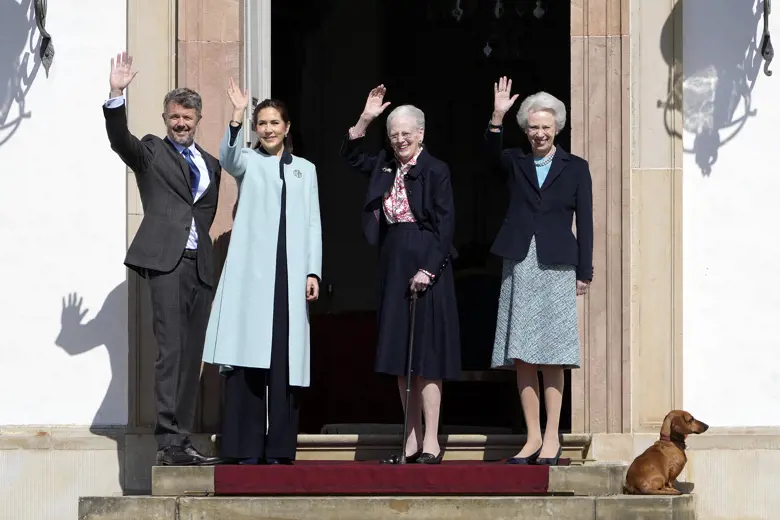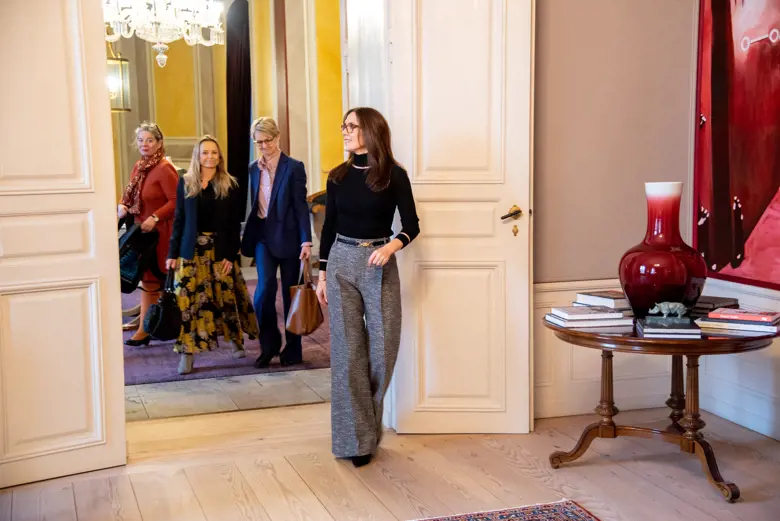HRH The Crown Princess’ speech at the Opening of the Food and Agriculture Seminar on 30 September 2016, Boston
Offentliggjort den 13. oktober 2016
Distinguished guests, ladies and gentlemen:
In our modern society, expectations are high, also with respect to our daily diet. It is almost expected that a good diet offers advantages - especially well-being and health.
Nutrition and well-being go hand-in-hand and it is an issue that is important for us all, because it is relevant to all of us.
Regardless of who we are and where we are from, we are all consumers of products made by the food and agricultural industry. So it’s clear that what you will discuss here today is of great importance.
I hope that you have eaten well this morning because as Virginia Woolf rightfully stated; ‘One cannot think well - if one has not dined well.’
Our well-being and long-term health depends on healthy food choices and eating habits. The seed to grow healthy habits is planted early, in childhood. If we teach our children the value of healthy eating and lifestyle choices, the odds are they will continue along this healthy path into adolescence and adulthood.
While we, as parents, have the primary responsibility for teaching our children to eat and live well, it is a shared responsibility: The community also has its part to play, as does the food and agricultural industry.
In order to deliver high quality food, the industry must accept and commit to highest safety standards. And this commitment should involve all actors at all levels of the food-chain.
The Danish food and agricultural sector’s commitment to producing safe food is widely recognised and has been achieved through co-operation between farmers, the food industry and authorities. The industry also realized early on the importance of research and development at every stage of production and research is often carried out in partnership between producers, public and private research institutes and national authorities.
High standards of safety in the production of Danish food give both customers and consumers confidence that every possible effort has been made to deliver safe and nutritious food.
This has led to Denmark being Europe’s no. 1 country for food innovation.
The cornerstone of Danish agriculture and food innovation is to produce more with less. While producing some of the highest-quality products, the sector has shown that it is possible to increase production while at the same time reducing the impact on the climate and the environment. Over the past 25 years, Danish livestock production has managed to cut water usage by two-thirds while increasing their production.
Another example of optimization is the production of whey; a by-product of making cheese, which now is used globally as a high value protein supplement in food production.
While extensive research and development ideally helps the industry enhance food quality, it also helps the bottom line. In a competitive market with scarce resources the ability to produce more with less is paramount. The companies that are here reflect cutting edge technologies and state-of-the-art solutions and services to all kinds of challenges and opportunities in the industry.
You have an interesting program ahead of you. I’m sure the Danish delegation is looking forward to hearing the American panelists share their knowledge and know-how. Sharing creates synergies and opens the door for new collaborations and in this case, collaborations across the Atlantic.
Global consumers increasingly demand global solutions and this requires global cooperation. I am sure we can all learn something from the innovative work that is being done at the U.S. Army Natick Soldier Research Center, here in Massachusetts. Personally, I find the idea of growing fresh produce in submarines fascinating!
Thank you for the opportunity to say a few words. Now it’s time for you to think even more about what we eat – have a great seminar. Please join me in welcoming the Danish Minister for Environment and Food, Mr. Esben Lunde Larsen.
Thank you.



